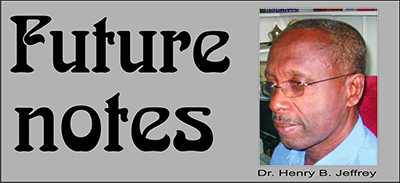 Two weeks ago, with the current migration problem in Europe in mind, the Foreign Affairs Minister of the Netherlands, Stef Blok, asked his audience consisting of Dutch employees of international organisations to ‘Give me an example of a multi-ethnic or multicultural society where the original population still lives … and where there is a peaceful society. I don’t know of one.’ When one participant suggested Suriname, the minister is reported as replying, ‘I admire your optimism but Suriname is a failed state and that is very much linked to its ethnic composition’. Another attendee suggested Singapore and the minister stated ‘Singapore is … a mini-country; extremely selective in its migration … They do not allow poor migrants. Yes, eventually, possibly for cleaning.’ Blok surmised that, ‘It’s probably somewhere deep in our genes that we want to have a well-organized group to hunt with or to maintain a village with. And that we are not able to connect with people unknown to us.’
Two weeks ago, with the current migration problem in Europe in mind, the Foreign Affairs Minister of the Netherlands, Stef Blok, asked his audience consisting of Dutch employees of international organisations to ‘Give me an example of a multi-ethnic or multicultural society where the original population still lives … and where there is a peaceful society. I don’t know of one.’ When one participant suggested Suriname, the minister is reported as replying, ‘I admire your optimism but Suriname is a failed state and that is very much linked to its ethnic composition’. Another attendee suggested Singapore and the minister stated ‘Singapore is … a mini-country; extremely selective in its migration … They do not allow poor migrants. Yes, eventually, possibly for cleaning.’ Blok surmised that, ‘It’s probably somewhere deep in our genes that we want to have a well-organized group to hunt with or to maintain a village with. And that we are not able to connect with people unknown to us.’
One of his own Members of Parliament asked, ‘Does this Minister seriously get no further than that xenophobia is in the nature of people? That we can’t live together and therefore a better world is impossible?” And in Suriname, an Indian opposition Member of Parliament, Chandrikapersad Santokhi claimed, ‘That Suriname under this government has become a country that some refer to as a ‘failed state’ is not due to its multicultural composition … Suriname is faced with a lack of good governance and unrestrained corruption.’ Minister Blok has apologized, but the problems of migration and racial/cultural integration he raised should be addressed.
Firstly, this position of Minister Blok is not new to European political thought. John Stuart Mill expressed something of it when he said that, ‘A portion of mankind may be said to constitute a nationality if they are united among themselves by common sympathies which does not exist between them and any others. … Where the sentiment of nationality exists in any force, there is a prima facie case for uniting all the members of the nationality under the same government, and a government to themselves apart.’
Secondly, Minister Blok was clearly using the ‘failed state’ label loosely, for it is now widely understood that a failed state is one ‘that can no longer perform its basic security and development functions and that has no effective control over its territory and borders. A failed state is one that can no longer reproduce the conditions for its own existence’ (http://www. lse.ac.uk/internationalDevelopment/research/crisisStates/download/drc/ FailedState.pdf). States like Suriname may best be referred to as ‘fragile states’, where ‘institutional arrangements embody and perhaps preserve the conditions of crisis. In economic terms, this could be institutions … that reinforce stagnation or low growth rates, or embody extreme inequality … in political terms, institutions may entrench exclusionary coalitions in power (in ethnic, religious, or perhaps regional terms).’
Indeed, using more nuanced socio/economic indicators – demographic pressures, displacement of refugees, vengeance-seeking group grievance, chronic and sustained human flight, uneven economic development along group lines, severe economic decline, delegitimization of the state, deterioration of public services, suspension or arbitrary application of law, human rights abuses, security apparatus operating as a “state within a state”, rise of factionalized elites, intervention of external political agents – the 2018 fragile state index (FSI) published by Fund For Peace (http://fundforpeace.org/fsi/data/) places the vast majority of countries in the world on a continuum, with the most fragile state, South Sudan, at 1 and the least, Finland, at 178. Suriname is at 114 and unfortunately, Guyana is considered much more fragile at 98. A good example of Guyana’s fragility is the recent welcome intervention of President Jimmy Carter.
Thirdly, Suriname has had a troubled political history, with military/political regimes intermingling with periods of electoral politics. On charges he denies, the current president, Desi Bouterse, was convicted in absentia in the Netherlands for cocaine trafficking. Bouterse having first taken office in a military coup in which many persons lost their lives in the 1980s, the country was returned to democratic rule, but Bouterse remained a strongman on the political scene until he was democratically elected president in 2010. These may serve to explain the minister’s statement and antipathy towards Surinamese, but needless to say, his comment was widely condemned.
Finally, in answer to the minister’s question in the first paragraph, I would venture that Belgium (FSI 163), where national political parties do not exist, and Switzerland (FSI 176) with its inclusive governance ‘magic formula,’ are multi-ethnic or multicultural peaceful societies with political frameworks that have been able to limit their ethnic problems to a point where the minister would not want to call them failed states. This kind of ethnic political cooperation may more easily be achieved in what are racially homogeneous but ethnically heterogeneous contexts, but the migration problem is now making European societies more visibly racially and ethnically heterogeneous and the problems associated with this movement is coming at a time when political relations in these societies appear unable to properly address the fallout from a growing wealth/class inequality. This general alienation and dissatisfaction is openly exploited by the always lurking ethnic and anti-immigration political entrepreneurs.
Put simply, European societies are now more racially and ethnically heterogeneous and the political institutions have not been designed for and are unable to properly cope with this growing but difficult context, and Blok’s lament is merely a nostalgic exploration. It is not that people of different races and ethnicities cannot live together; it is that the more culturally complex democratic society becomes, the more people require representative political institutions to identify, aggregate and solve the various national and group concerns. And the answer to the absence of good governance and there being little restraint upon corruption in Suriname requires a similar response. Although Suriname’s multiculturalism is less difficult to manage than, say, near bicommunal Guyana, its political structures still have to be tweaked to make its leaders more accountable.
What Minister Blok faces in his neighbourhood is not simply a matter of ethnic and cultural differentiation but also one of state failure: the political system’s inability to respond productively to class and ethnic powerlessness, raging inequalities, etc. in a timely manner. Thus if he is correct in relation to Suriname, to differing but still uncomfortable degrees, his too might be a failed state.
———————————————










